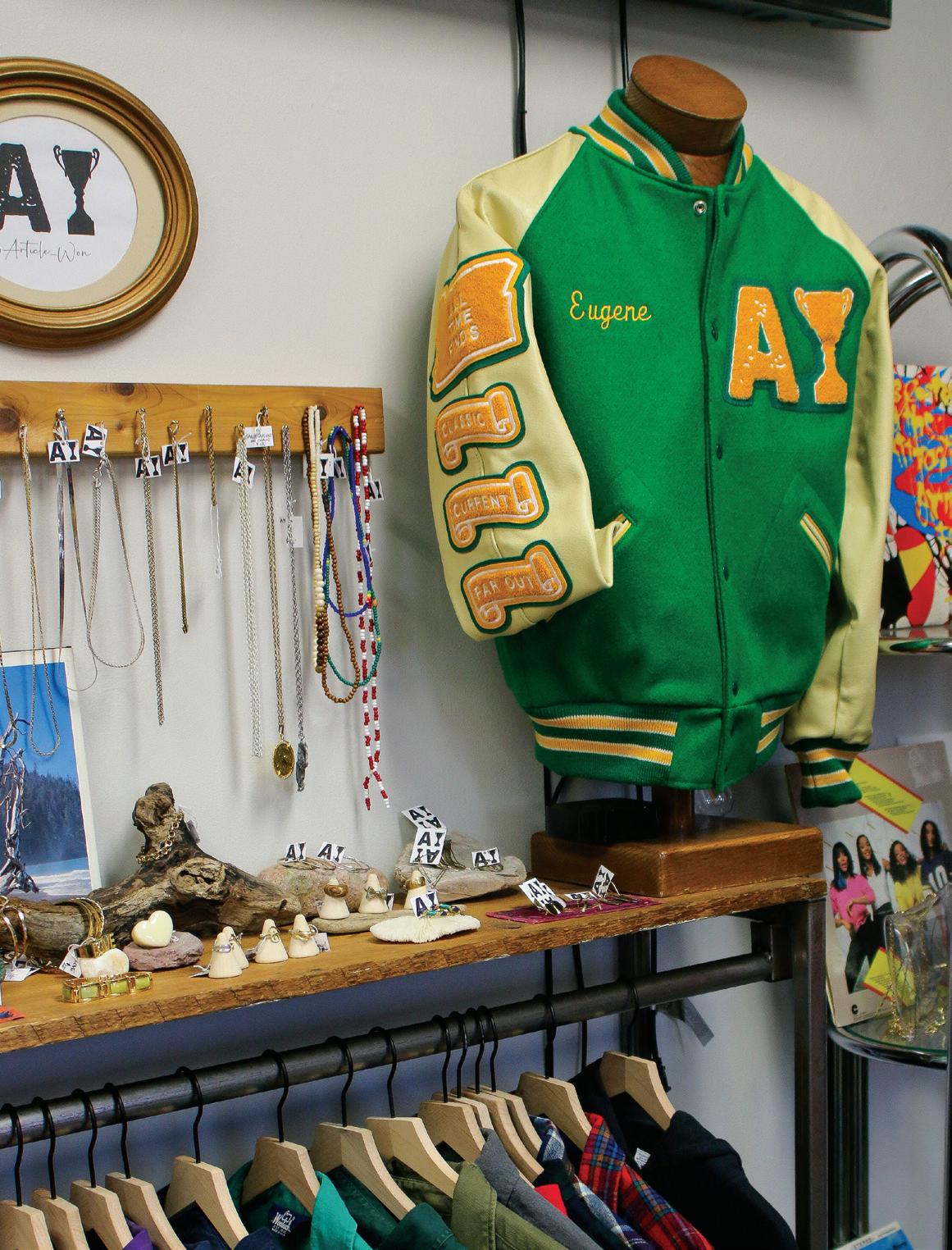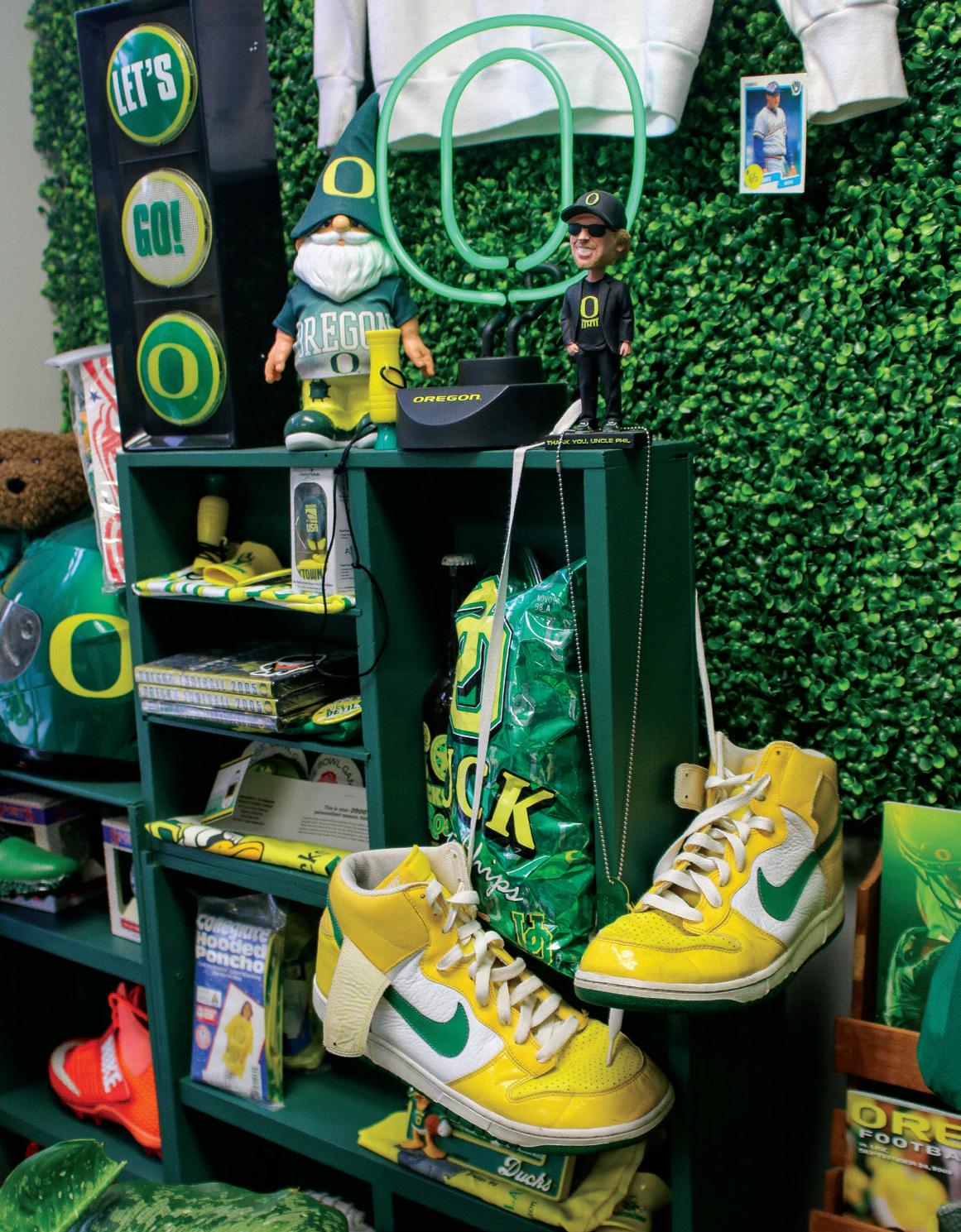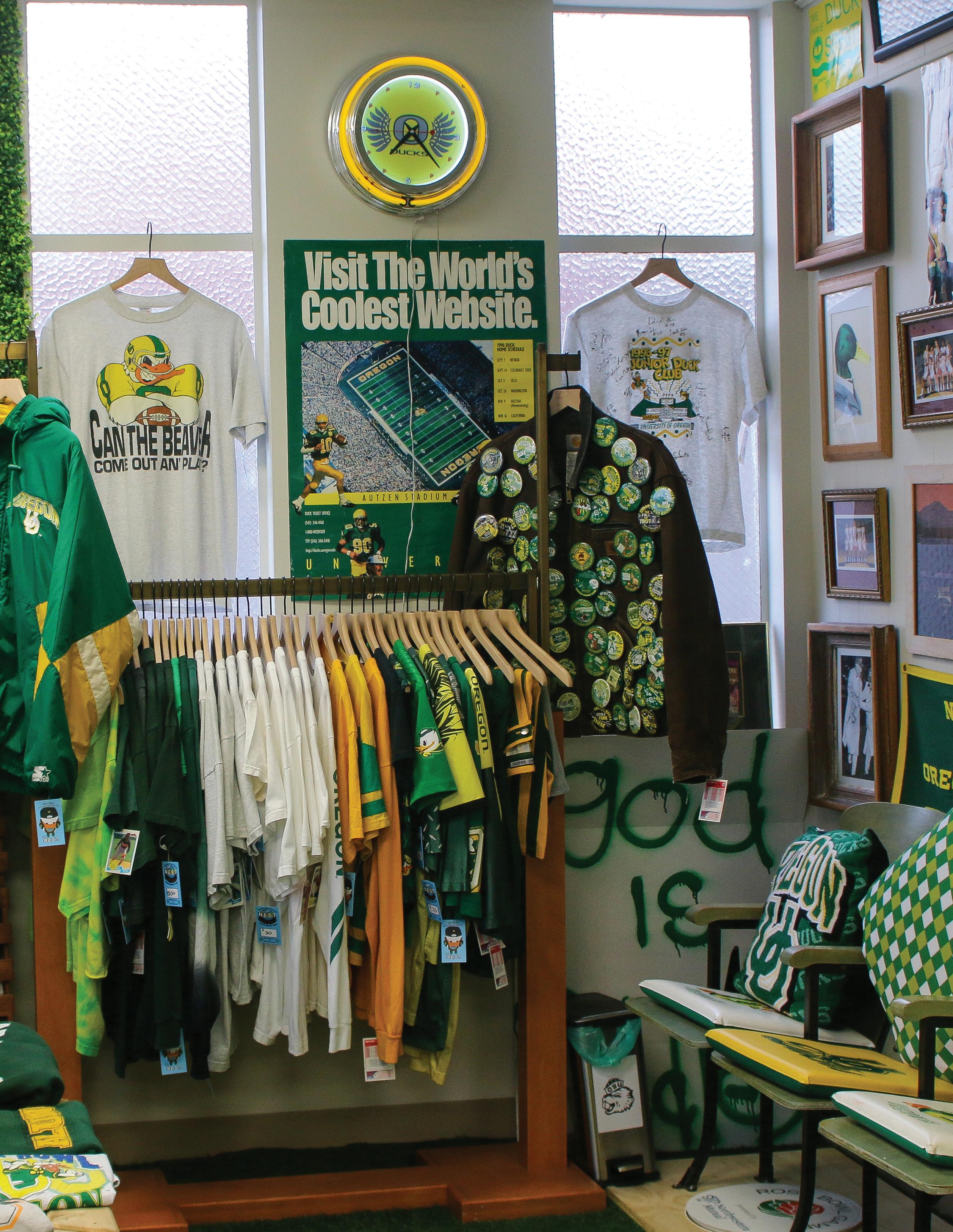
4 minute read
THE NEST
the student’s sustainable vintage shop
written by
Advertisement
Ceili Cornelius
photographed by
Bailee Balboa
Eduardo Olviares and Harrison Stevens always
had a passion for selling sustainable fashion and vintage clothing, but it was just a side hustle passion project. That is, until they opened their own store front business on 13th avenue just down the street from the University of Oregon. Their store, The N.E.S.T which stands for Neighborhood Eugene Sustainability Team, opened on January 8th, 2021. Stevens graduated from the University of Oregon in August of 2020 with a degree in Business and a minor in Marketing. Olivares, his partner, is currently a third-year majoring in Advertising and Sports Business. Stevens and Olivares both began by selling vintage and thrifted clothes online on their own, until they came together as partners selling clothes on Instagram as well as in pop-up shops at the ASUO street fair at UO during spring and fall term. “We saw a sustained need for sustainable vintage clothing for college students. We wanted to have the UO audience,” said Stevens. “We really want to become a familiar face in the Eugene area,” he continued. The name comes from the idea of wanting to create a community of sustainable fashion. “We wanted a business that would promote reducing the carbon footprint and extend a garment’s life span and expand the longevity of the planet in turn,” said Stevens.
Stevens and Olivares saw the need for this type of clothing and decided to go beyond online sales and open up a store front. The process has been in the works for about a year to aqquire the space and set up the store. They decided to open up a physical store because with the increase of items they were finding and had in stock, as well as the audience they had gained, the online business model wasn’t going to be enough. “Our motto is sourcing clothes from everywhere and leaving no stone unturned. We pivoted a bit when opening to a larger pool in which we were buying from,” said Stevens. The two generally buy from thrift stores, but primarily they have been buying from Portland vintage collects and use existing networks to source the items they sell. They sell everything from vintage crewnecks, t-shirts, bottoms and accessories all vintage level. Vintage clothing is anything from the generation before and the blanket term is that it is something from at least 25 years ago. Generally items from the 70s, 80s, 90s and early 2000s is primarily what they source and sell.
Vintage shopping and thrift shopping contribute to lessening the carbon footprint of the clothing industry by increasing the lifespan of garments by 2 when the item is repurposed or resold. “When the owner of an item donates an item out of their life, they are putting that item back into the cycle and giving it a lifespan times 2,” said Stevens. “It is an investment into somebody’s wardrobe without an investment in the environment because the item is already made,” said Stevens.
According to Olivares, there is also a“‘cool factor” for a consumer who shops for vintage clothing. “We have a huge variety of customers and it is a cool thing to wear vintage clothing and wear stuff that is an inexpensive, cool and environmentally friendly option because the item is just being resold,” he said.
Their store is unique because it is different from a general thrift store. At a thrift store, items are donated and put there instead of ending up in the landfill. At a shop such as The N.E.S.T, a consumer is buying from a store with a collection of curated vintage pieces that have been chosen by the owners to sell.
Owners of The N.E.S.T, Eduardo Olivares and Harrison Stevens, stand inside their vintage clothing store in Eugene, Oregon.
“We wanted to bring something new to Eugene and provide college students with an environmentally-conscious choice of
self-expression,” says Olivares.


Stevens and Olivares encourage people to shop at The N.E.S.T because of the many benefits of not only sustainably shopping, but also bringing the awareness of vintage clothing to the Eugene scene. “We want to bring the fashion vintage culture to Eugene and for people to know that they are supporting a student-run business as well as shopping this way is good for the environment,” said Olivares. For Stevens, “this is the only place to find fashion staples for every type of day including all of your Oregon gameday gear in a unique way.”
“It is a new form of self-expression and in a sustainable way. This way of fashion is now so in our futures and vintage is affordable, unique and sustainable. We are excited to continue here and it is something the community hasn’t really seen before,” said Olivares.
Right now, The Nest is operating by appointments due to COVID-19 restrictions and you can make an appointment through their Instagram or their website.
The posters and other items included in the Duck section of The N.E.S.T took over two years to find and collect, says Olivares. Most of the items are from the ’90s and have come from all over the United States.










